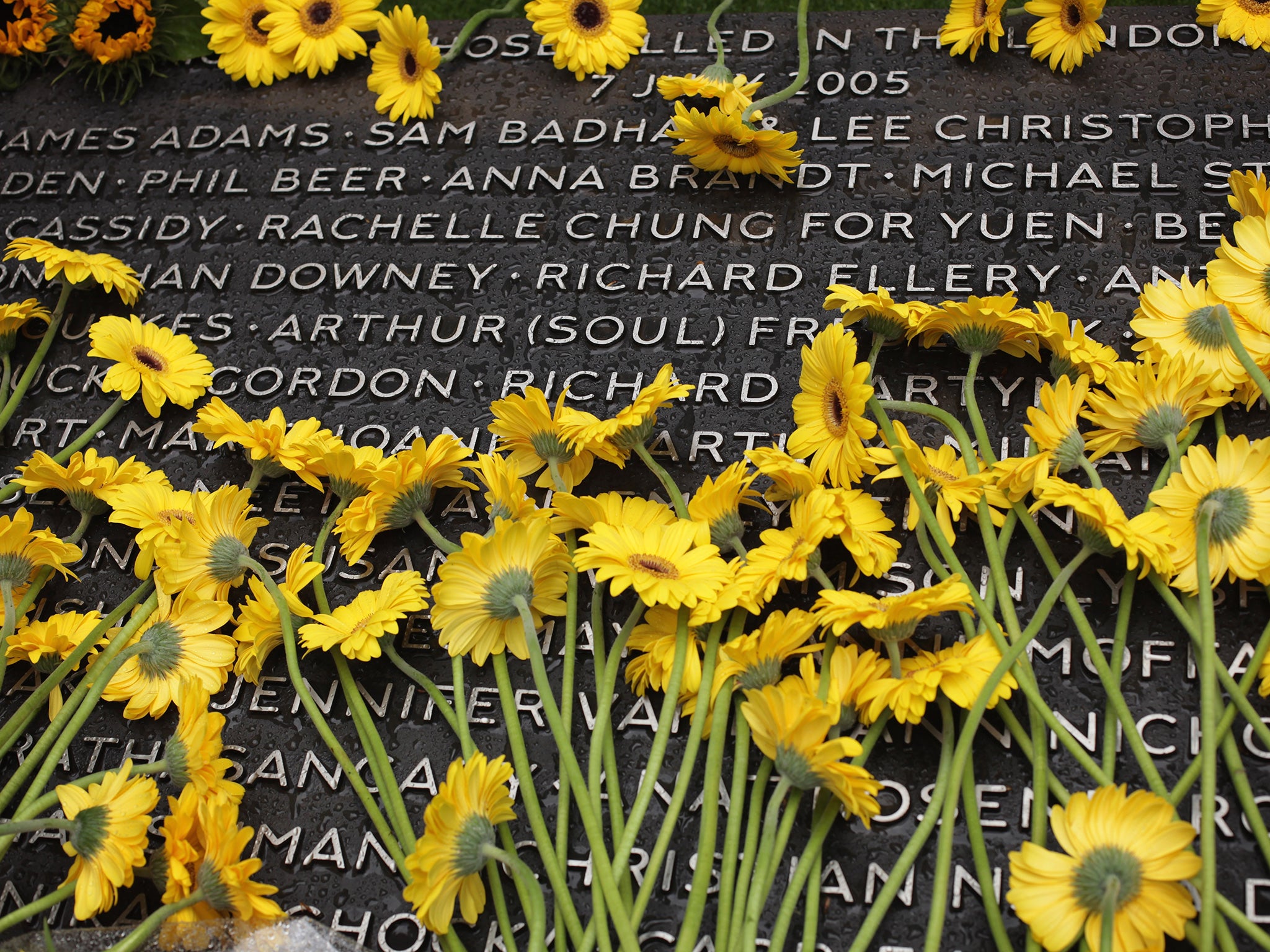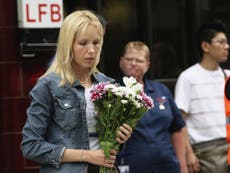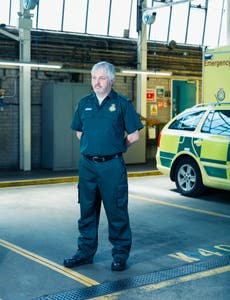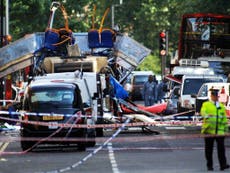After the London bombings on 7 July I became a 'British Muslim' - suddenly my religious identity took centre stage
Now every time I hear of another terrorist attack, I pray it wasn't orchestrated by a Muslim

A decade has passed since four men travelled to London and blew themselves up killing 52 people. I was 16, and I remember it well, I remember the confusion, the anger and the shock.
Since then terror has raged across our world, from al-Qaeda to the Taliban, from Boko Haram to Isis – all in a sick battle to outdo each other in massacre and bloodshed, and all, reportedly, in the name of Islam.
In the past 10 years the language used to define terrorists has changed. They have gone from being called “homegrown terror cells” to Islamists, radicals, jihadi fighters, jihadi brides and so on.
Muslims have come out time and again to denounce their actions. Hashtags such as #NotInMyName have dominated social media. I have lost count of the number of times I have had to say: “These terrorists do not represent Islam, these are not the actions of Muslims.” And I have lost count of the number of times I have despaired upon hearing news of another terror attack, praying it was not orchestrated by another Muslim.
When the attacks occurred in 2005, I was already conscious of my Pakistani heritage. I was attending a private school where the student population was predominately white.
At that time I was leading a double life, like many in my generation. At home we conformed to the social and cultural norms that were expected of us, yet with my friends I was free to be the individual I wanted. Before 7/7 my identity was British Asian, a term which sounds outdated now.
Following the attacks, my religious identity took centre stage. The term “British Muslim” was coined, which posed an identity crisis. Could I be British and Muslim? These questions encouraged me to look at Islam in depth. I hadn’t done before, but I hadn’t needed to. Nobody had asked me about my headscarf, or asked questions like “why does Allah tell you lot to go around killing us?” I found I was comfortable with my identity and I knew that terror had no place in Islam, a religion of mercy, compassion and peace. But in some ways I was also young and naive; I did not expect that the generation below me could be groomed to join a movement such as Isis.
A friend recently told me he was sick of being viewed with suspicion; he was tired of having people ask him his views on Isis. He told me “I hate Isis more than they do for hijacking our religion and affecting my life and relationships."
Is it plausible to suggest that if your identity is constantly under scrutiny, it makes it easy for you to become a victim to those who seek to prey on you for their own evil ends? Is it worth asking whether if you are unemployed, living in a deprived area with little aspirations, constantly under attack for who you are with no one to guide you, that you could fall victim to the Isis machine? It is worth asking what we should do when some parents do not speak English as a first language thus fail to even communicate with their children let alone detect signs of radicalisation?
Over the past month I have spent a lot of time in Dewsbury and Bradford, speaking to people who know those who have left for Syria. A significant push factor is identity; you see many of my generation recognise that their heritage is Pakistani, Somali, Arab or Bangladeshi.
Many of us are second or third-generation children of immigrants with strong ties to our parents’ birth countries. When we visit the “motherland” we do not belong because we speak the language differently or we look and act in unfamiliar ways. Yet in the country we are born and raised we are sometimes seen as a threat.
Community workers up and down the country are doing brilliant work mentoring young people and trying to prevent radicalisation, and we have to acknowledge and appreciate their work. A lot of the time that work goes by unnoticed. But there is so much more to be done by all of us.
Two days ago, a relative came to my house to break his fast with me and my husband. He is a very good friend of a family member of one of the victims who died in the Tunisia attack, and mentioned casually in conversation that at first he was worried to go over to the house and offer his condolences. He asked us if it was too soon. “I worry if they will now see me as a Muslim,” he said.
In that bleak moment it felt like the world had come round in a circle. I remembered the stories my parents used to tell me of enduring racism on the streets of Bradford when they first arrived in the UK. I worry about what the future holds for my children, and their own identities.
I used to think my generation would never have those problems, but over the past couple of weeks I have heard of the backlash Muslims, and those that look like Muslims, have faced. It appears the focus on racial prejudice has shifted to religious prejudice.
Yet a couple of days ago, I travelled with a group of young people from different faiths on a peace journey to London from Leeds. They took the same journey the bombers from Leeds had 10 years ago but they were replacing it with peace.
It was a mixed group of different races and faiths and we travelled together. They paid respects at the 7/7 memorial and they heard from survivors of the attack. Before I left for my journey home after what was an emotionally and physically exhausting day, one young person turned to me and said: “It’s all about unity. If we stand together as humans, we can defeat terror.” I walked away feeling hopeful and inspired.




Join our commenting forum
Join thought-provoking conversations, follow other Independent readers and see their replies